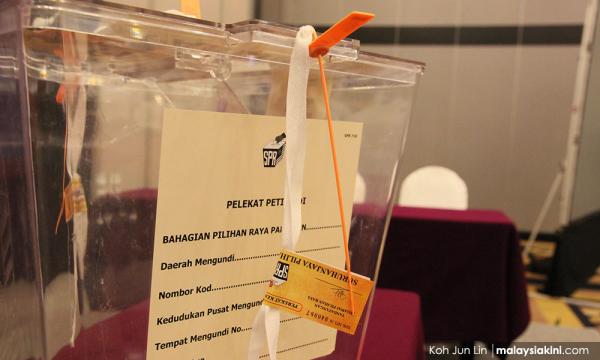COMMENT | The call for spoiled votes is a backlash against our deeply flawed political system. Ironically, however, carrying it out in the 14th general election will only make the political system more flawed, defeating its own purpose.
A truly democratic political system must include the ballot option to constructively reject all candidates. More importantly, it should be based on a proportional electoral system. But all these are only possible if we first make our votes count in GE14.
While intentional spoiled votes and its more likely by-product, low turnout, will make gerrymandering and other electoral frauds work maximally to restore BN’s two-thirds majority, mishandling the spoiled votes campaign by political parties and their supporters will only strengthen the cheater’s hand.
The bitter and abusive exchanges between those who support and oppose the campaign may just dissuade more voters from going out to vote.
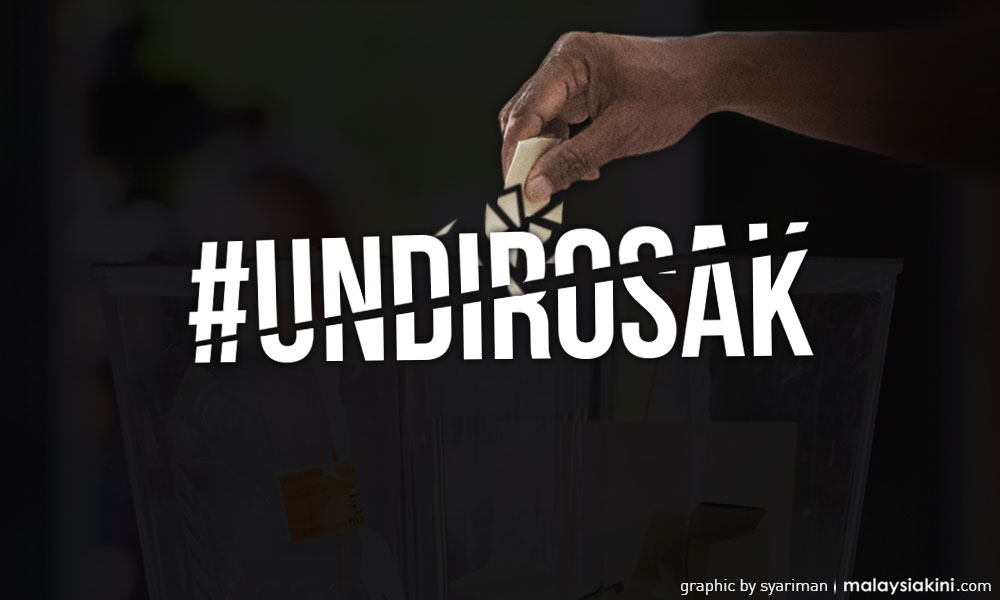
There is simply no need for self-righteous abuse, sexist remarks, or even death threats from either side. We are matured enough to talk to each other and find solutions.
Instead of slamming, the Election Commission (EC) and parties must be willing to engage citizens who give up on elections. In a step forward of bold and open leadership, Penang Chief Minister Lim Guan Eng has responded well by asking for wish lists from the young people.
To eliminate the need for spoiled votes, I would suggest three institutional reforms to be included in Pakatan Harapan’s manifesto: a mixed member proportional (MMP) system, as well as the ballot options of “none of the above” and “write-in.”
Three major structural flaws
For some, the reasons for spoiled votes include “No choice in the selection of leaders,” “Why choose between Party A or B only?” “Mahathir is unacceptable as the opposition’s PM candidate,” “Dissatisfied Pakatan Harapan supporters should spoil their votes to teach the opposition pact a lesson,” and “Exercising your voting rights and telling Harapan and BN that we don’t like the both of you” and so forth.
Others feel that whatever mandate voters make will be disregarded, given the massive fraud in the electoral system and process.
While some would focus on personalities, all the complaints above can be summed up as three major structural flaws:
Excessive malapportionment and gerrymandering of constituencies: When a government can be re-elected by a 47 percent minority and crack down on the majority at whim, how can people get the government and the policies they want, or ditch the taxes they don’t want?
The First-past-the-post (FPTP) system: The system favors two largest blocs in most constituencies, which limits policy and programmatic variety. As constituencies have to be allocated to coalition members by negotiation, often voters don’t get to vote for their preferred party. Even candidates may need to change constituencies due to seat negotiation.
A closed ballot structure: This does not allow voters to choose “none-of-the-above” or to “write-in” other candidates.
Solution 1: Mixed member proportional electoral system
To defeat malapportionment and gerrymandering, Malaysia should consider adopting the German-style mixed member proportional system, a combination of FPTP and party-list proportional representation (List-PR) systems, like New Zealand did in 1996.
Voters are given two ballots, one ballot for constituency representatives, just like our FPTP elections, and the other ballot for the party.
For the party ballot, political parties will have to name many candidates in a list, hence, the name “party-list.” With two ballots, voters can choose party A candidate for the constituency and party B for party-list. The party ballot also allows allied parties to have a healthy competition between them. All in all, voters get a greater variety of parties and political programmes in elections.
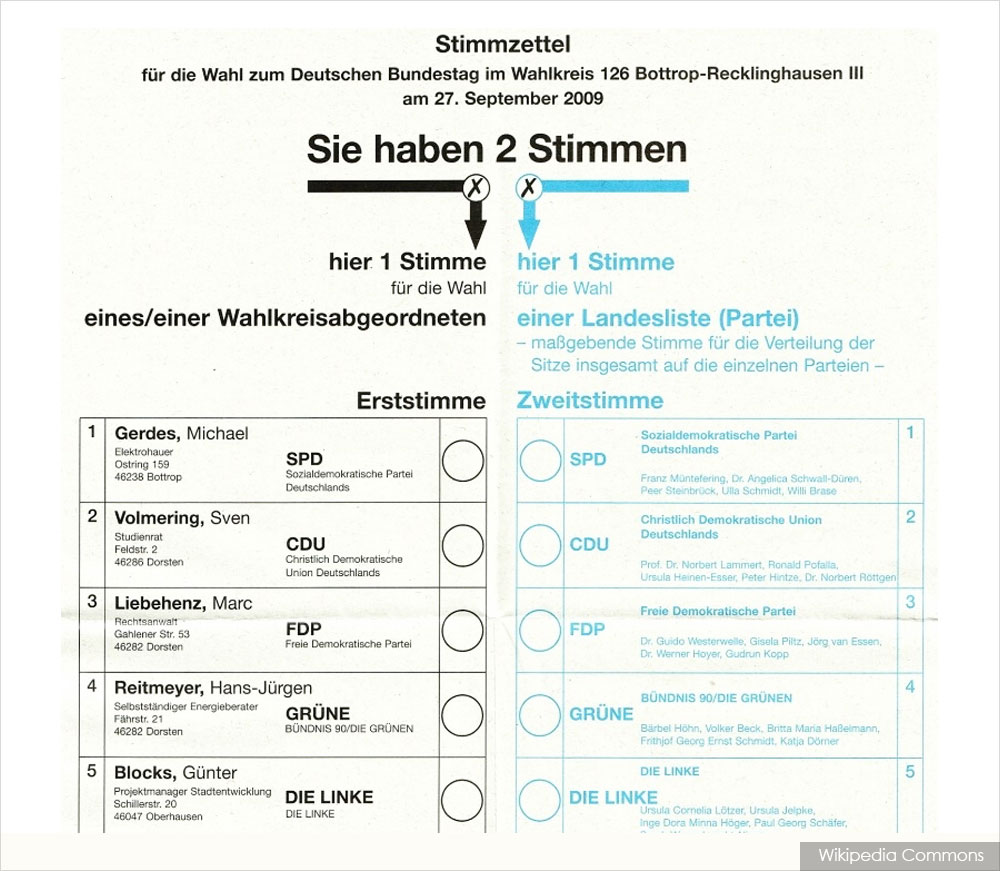
Legislatures are then divided into two halves: constituency representatives, and party-list (non-constituency) representatives. Seats are allocated proportionally based on shares of party ballot.
Parties will keep all the constituency seats, and the remaining will be made up of party-list seats. For example, if the parliament has 200 seats in total, and party A wins 30 percent of votes, it should be entitled to around 60 seats. If party A already wins 40 constituency seats, it will get 20 party-list seats. Contrarily, if party A wins only 20 constituency seats, it will get 40 more party-list seats.
This completely does away gains from malapportionment and gerrymandering. It also protects parties from exclusion due to multi-cornered contests.
Also, party-list representatives cannot defect with their seats, hence, governments cannot be overthrown by the crossover of “kataks.” As for voters, every party ballot matters, regardless if they live in any party’s stronghold constituency.
Lastly, MMP will also improve the diversity of legislatures and quality of debates, scrutiny, and legislation. Parties can introduce gender, minority, and other demographic quotas, and also draw in more experts and activists through party-list representation.
The very fact that the party-list (non-constituency) members are representing voters based on issues and social grouping, legislatures will be forced to be more professional and serious in debates and law-making.
If GE15 is to be conducted under MMP, voters will only be spoilt for choices and the parties supported by the majority will run the country, would there still be a pressing need for spoiled votes across constituencies?
Solution 2: Constructive options for protest vote
Spoiling your vote now will only delivery victory to one of the candidates you reject because our ballot structure is not designed to accommodate intentional protest votes.
Let’s take the hypothetical scenario in Constituency A:

With only 25 percent of votes, Candidate N can claim to represent all voters even if 51 percent intentionally spoiled their votes and 24 percent others voted for Candidate M. The 75 percent who oppose N will be complete losers.
While N may enjoy little legitimacy, his victory is perfectly legal. What will 51 percent spoiled voters get? What can they do? Nothing.
This need not be the case. Instead of spoiled votes, we can and should have the options for constructively capture protest votes, through two simple additions to the ballot papers: none of the above; and write-in.
With either option, protest votes may make a difference and as the system gives recognition that dissent is acceptable, and diverse representation can be constructively reinforced.
None of the above option
India is one of many countries with the none of the above option. In 2013, the Supreme Court of India made a ground-breaking decision where it upheld the right of voters to reject all candidates contesting the elections, in an effort to cleanse the political system of the country.
The apex court directed the Election Commission to have an option of 'None of the above' on the electronic voting machines (EVMs) and ballot papers in a major electoral reform.
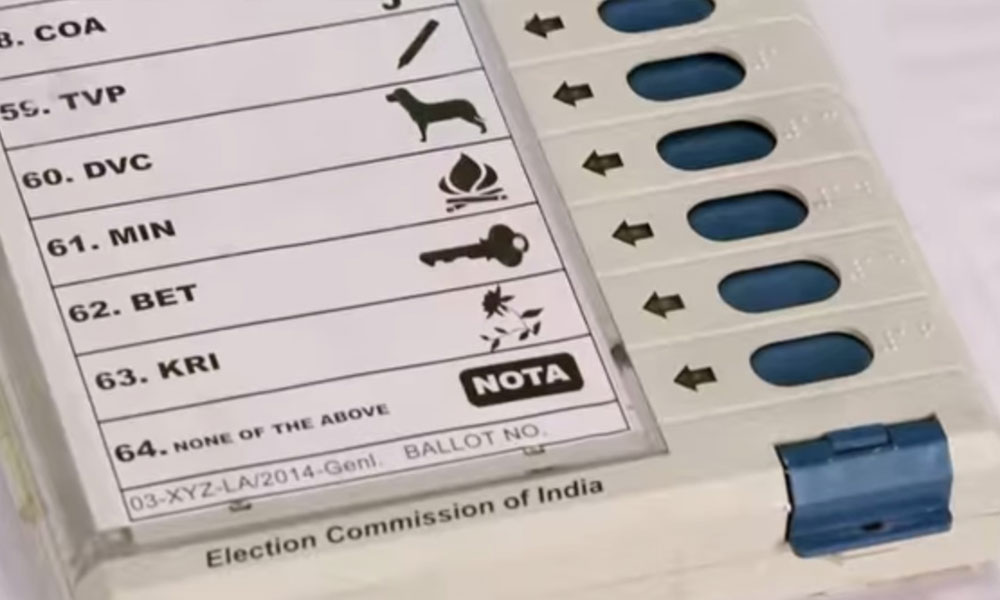
While none of the above in India also has no electoral implication, but in 2016 it accounted for 1.3 percent or 561,244 votes of the total votes polled in the Tamil Nadu Assembly election. High none of the above voters gives a moral authority that political parties’ actions or their selection are not supported by voters.
This is in many ways similar to the popular vote that Pakatan Rakyat (52 percent) gained over BN (48 percent) in GE13.
To make rejection votes effective, Malaysia can introduce the none of the above option, which mandates a new election if the option wins the highest vote in a constituency.
Write-in votes
Write-in votes are practiced in some states in the US where there is an option at the bottom of the ballot paper for voters to write who they want to be the candidate if they disagree with all the options given by the political parties.
In the recent Alabama senatorial by-election, where alleged pedophile Roy S Moore was adamantly endorsed by President Donald Trump and stayed on the Republican ticket, some dissident Republicans called upon voters to “write in” the name of a third candidate.
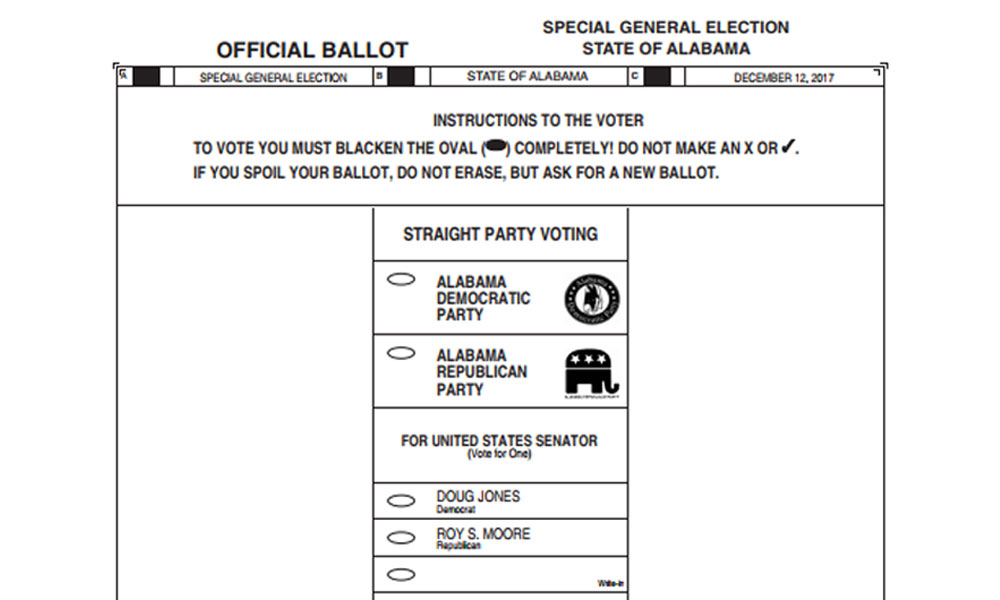

While write-in did not work in Alabama in 2017, it did work in the Alaska senatorial election in 2010. Incumbent Lisa Murkowski lost in the Republican primary to a right wing candidate backed by the Tea Party, but she won her re-election as a write-in candidate. ]
Vote in GE14 for reforms in GE15
I strongly believe in proportional representation, especially MMP, and constructive options for protest votes, whether it is the none of the above option or the write-in vote option.
Our electoral system and process must change after GE14. People must have a wide range of meaningful choices.
So, to the pejuang – let’s lobby all political parties to commit to these reforms for GE15. Make your views electorally relevant, not irrelevant!
We must advance the debates on MMP, the "none of the above" option and the write-in vote option so that more members of public will understand the issue. Making our electoral system and process more inclusive and representative should be our focus, instead of pure verbal exchanges.
Political parties must give voters positive reasons to go to ballot booths, including the option to constructively reject all candidates in future elections.
Given’s Lim’s invitation for voter input, I sincerely hope the Harapan manifesto will categorically promise the above options for both federal and state elections in GE15.
Before we have these reforms in GE15, let’s remember we are stacked against an unfair electoral system in GE14, which can only be overcome by a high turnout.
Every spoiled vote will reinforce the flawed system. Every abstinent voter will prolong our disenfranchisement.
Without any spoiled vote campaign, GE13 already saw more spoiled votes than the winner’s margin in 11 parliamentary constituencies.
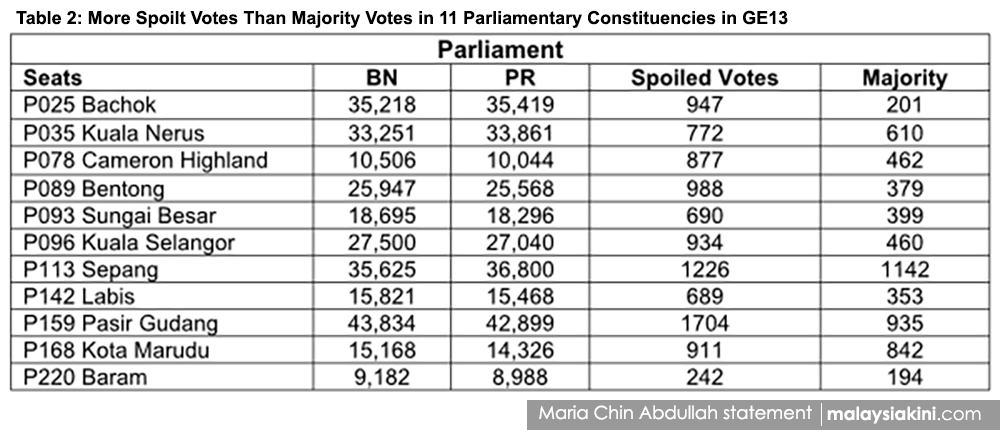
With the help of spoiled votes, BN can easily win 15 more parliamentary constituencies in GE14 and regain its two-thirds majority. Will we then get any reforms? How many elections in future must you spoil your vote in perpetual frustration?
Voting for change is not sufficient to bring about reforms after GE14. It is only the necessary.
We must do more, including advocacy for MMP, the "none of the above" option and the write-in vote option. If we don’t even vote, then we have no one to blame but ourselves when things get worse after GE14.
MARIA CHIN ABDULLAH is the chairperson of Bersih.
The views expressed here are those of the author/contributor and do not necessarily represent the views of Malaysiakini.
How 'powerful' is your vote? Visit Undi Power to find out.

